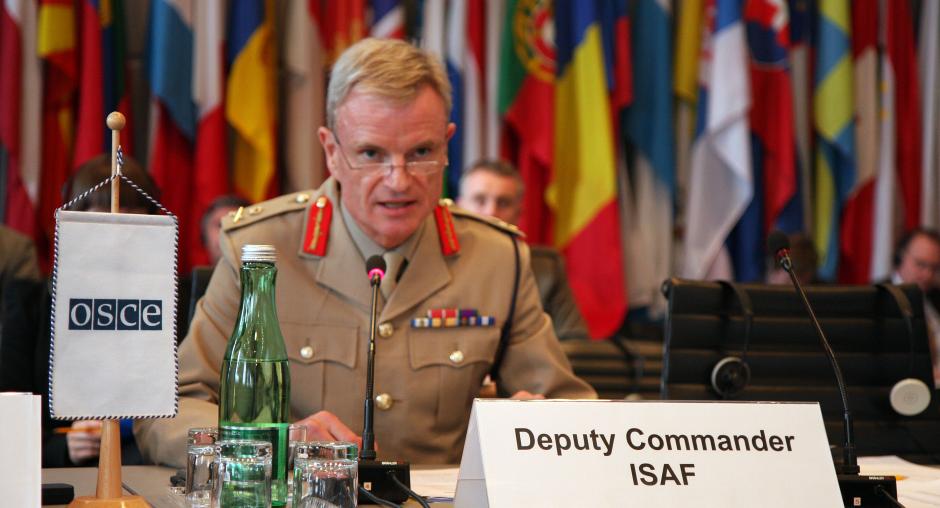Political will critical to success in Afghanistan, Deputy Commander of ISAF tells OSCE

VIENNA, 14 October 2009 - The international community must remain committed and show political will in Afghanistan, the Deputy Commander of the International Security and Assistance Force in Afghanistan (ISAF), Lieutenant-General J. B. Dutton of the U.K., told the OSCE States today.
At a joint meeting of the OSCE Forum for Security Co-operation and Permanent Council, Dutton addressed ISAF's mission and its implications for OSCE participating States. He discussed the assessment by General Stanley A. McChrystal, the NATO and U.S. commander in Afghanistan, and co-operation with the government of Afghanistan, an OSCE Partner for Co-operation country.
Dutton emphasized that containing the insurgency violence was an "essential precursor to progress".
"This year we have seen a re-energized insurgency which has been buoyed up by a public perception of decline and a strong suspicion that the international community's determination may be lessening," he said. "There are many problems in Afghanistan and the region at the moment, but I believe the single most likely cause of strategic failure would be the loss of political will by the West to see this project through. Any perception of reduction in commitment or steadfastness works against our interests.
"The problems here are complex but the real issue is that the perception can so easily become the reality."
He said that the OSCE had a role to play in international efforts in Afghanistan, particularly in support of police training.
In 2007 the OSCE states approved a decision to strengthen the Organization's engagement with Afghanistan. The decision puts particular focus on intensifying OSCE action to help secure and manage borders between the OSCE's Central Asian participating States and Afghanistan. The decision also calls for police training and support in the fight against drug trafficking.
